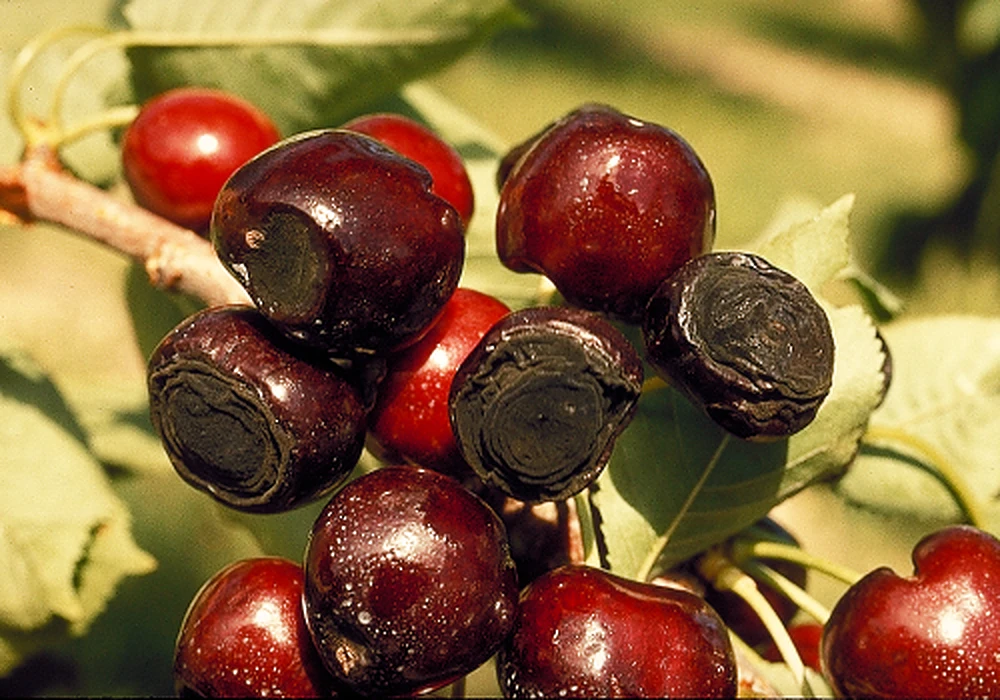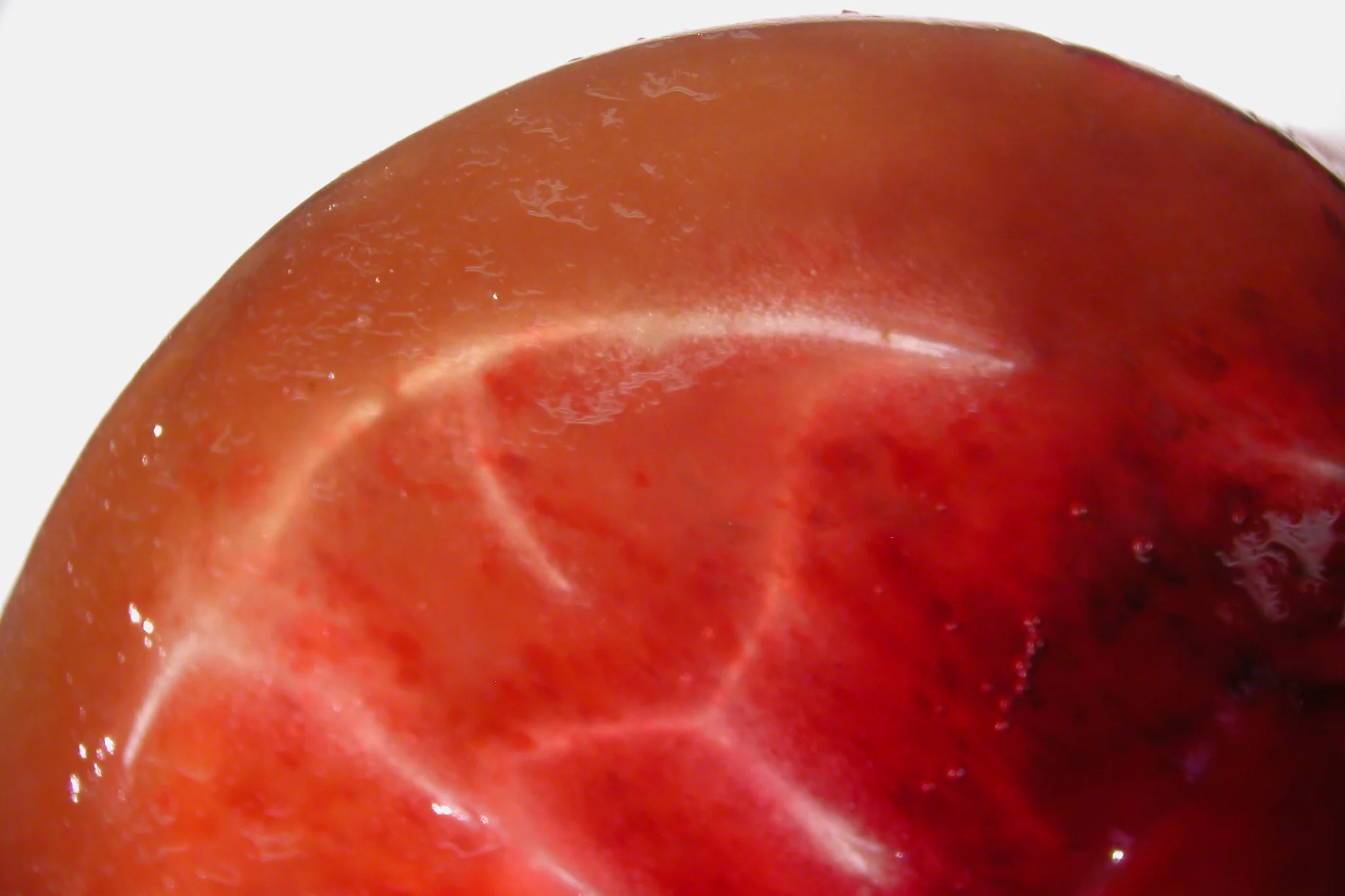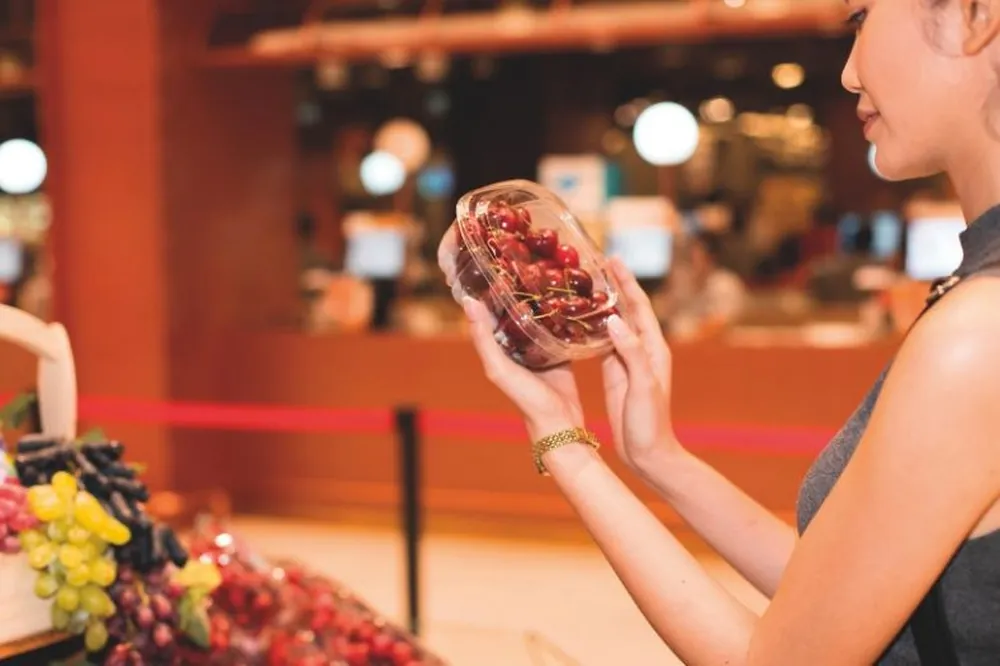The Alternaria alternata fungus is a widespread problem known to cause significant contamination and rotting of food produts during the post-harvest storage period. The microorganism exhibits a high growth rate under low temperature conditions, thus contributing to the deterioration of cherry quality both during transport and storage.
It has been documented that several Alternaria species have the ability to synthesise distinct secondary metabolites, including carcinogenic mycotoxins. When the fungus has the ability to reproduce on an edible substrate, this poses a threat to the health of humans and animals. For this reason, a significant amount of food and raw materials are discarded each year due to contamination and spoilage caused by the proliferation of Alternaria.
Currently, the predominant approach for its management involves the use of fungicides. However, considering the prolonged persistence of these substances after application, they still pose a considerable risk to human health, food safety and environmental integrity and therefore cannot be considered a viable solution to the problem. Instead, a possible alternative is biological control, which is recognised as reliable and safe compared to chemical methods. Indeed, some bacterial species have already been identified as potentially effective biological control agents due to their remarkable hostile activity against A. alternata.
These organisms have different mechanisms of action and generate a wide range of physiologically active substances that act as antifungal agents. Of these, Bacillus is a widely recognised bacterium within the group of antagonistic bacteria due to its ability to produce antimicrobial chemicals with a broad spectrum of activity.

Furthermore, Bacillus has been found to promote plant development, increase plant biomass and induce systemic resistance in plants against plant-damaging fungi. The main objective of the study conducted by researchers from different institutes and universities was twofold: (a) to isolate a Bacillus strain that showed significant potential in inhibiting the growth of A. alternata and (b) to identify, within the genome of the identified species, the genes responsible for the synthesis of antifungal lipopeptides.
The results led to the identification of Bacillus subtilis strain Y17B, which exhibits remarkable antifungal properties against Alternaria alternata. Subsequently, mass spectrometry analysis revealed the presence of specific lipopeptides such as surfactin, iturin and fengycin. The efficacy of these lipopeptides in preventing the growth of A. alternata was demonstrated by means of an in-vitro investigation.
Thanks to microscopic observations, it was observed that the lipopeptides produced by the Y17B strain led to morphological alterations in Alternaria alternata, leading to a reduced development of the disease in cherry fruits. Expectations are therefore to make Bacillus subtilis Y17B marketable for the effective control of Alternaria alternata.
Source: Ahmad T, Xing F, Nie C, Cao C, Xiao Y, Yu X, Moosa A and Liu Y (2023) Biocontrol potential of lipopeptides produced by the novel Bacillus subtilis strain Y17B against postharvest Alternaria fruit rot of cherry. Front. Microbiol. 14:1150217. doi: 10.3389/fmicb.2023.1150217.
Photo credit: Alan Jones, MSU
Melissa Venturi
University of Bologna (IT)
Cherry Times - All rights reserved











